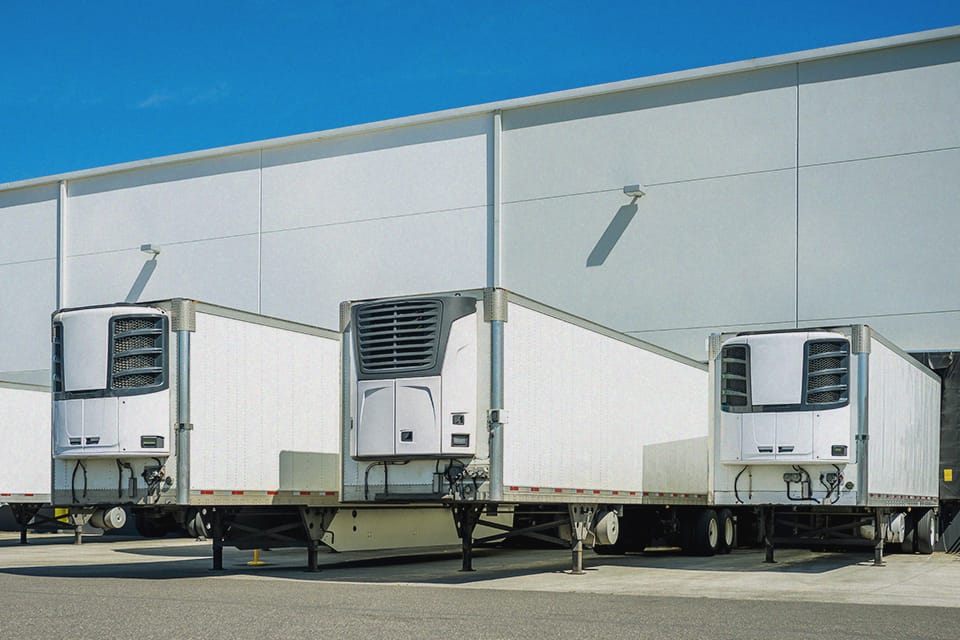
Overview of Cold Chain Logistics: Ensuring Stability and Efficiency

Cold chain logistics is crucial in preserving the quality and safety of temperature-sensitive products like food and beverages. Maintaining a precise, temperature-controlled environment throughout the supply chain is critical to preserving product quality and safety. The logistics process involves various interconnected stages, including warehousing, shipping, compliance, and data monitoring, each requiring careful coordination to prevent disruptions.
As global demand for cold chain logistics continues to grow, the industry faces increasing complexity. This article provides an overview of the key components of cold chain logistics and explores the systems and processes that ensure operational stability and resilience, highlighting the importance of efficient contractor management at every stage.
The Complexities of Cold Chain Logistics
The cold chain logistics industry involves various stages, including temperature-controlled warehousing, specialized shipping, and precise inventory management. It serves industries including food and beverage, pharmaceuticals, and even chemicals, each of which has stringent compliance and safety requirements.
The global cold chain logistics market was worth an estimated $48.4 billion in 2020 and is expected to exceed $410 billion by 2028. Like many sectors, contractors are used widely across operations. Given these stakes, companies cannot afford to leave contractor management to individual actors who may lack visibility or fail to adhere to industry standards.
Discrepancies or oversights in contractor management can result in disrupted supply chains, spoiled goods, and significant financial losses. Global companies face these risks daily, making it crucial to have a unified and comprehensive contractor management system.
Key Components of Cold Chain Logistics
- Temperature-Controlled Warehousing: Cold storage facilities must maintain precise temperatures to prevent spoilage and ensure compliance with safety standards. Managing these facilities involves a network of contractors, each responsible for tasks such as refrigeration, maintenance, facility upkeep, and regulatory inspections.
- Specialized Shipping and Transportation: Cold chain logistics depends on efficient transportation solutions, often requiring refrigerated trucks and air freight services. This process involves numerous contractors who need to maintain equipment and handle goods according to strict protocols.
- Compliance and Risk Management: Compliance in the global cold chain logistics industry is multifaceted, covering food safety regulations set by government regulators — like the U.S. Food and Drug Administration and the European Food Safety Authority — and other standards. Any misstep by a contractor could expose the company to regulatory fines, damaged reputation, or even legal action.
- Data Monitoring and Reporting: Contractors play a significant role in data management, ensuring that temperature logs, safety records, and delivery timelines are meticulously tracked and reported. A fragmented contractor management approach can lead to data gaps, making compliance and operational efficiency hard to achieve.
The Role of Contractors in Cold Chain Logistics
Contractors are essential at every stage of the cold chain, performing tasks ranging from equipment maintenance and repairs to transportation and warehousing. Their specialized roles include managing refrigeration systems, handling freight, ensuring safety compliance, and performing data monitoring. Given the scope of these responsibilities, companies that lack centralized contractor oversight may struggle with coordination, resulting in costly disruptions.
By adopting a comprehensive contractor management system, companies can streamline operations and reduce risks across the board. Such systems provide enhanced visibility into contractor performance, ensure adherence to safety protocols, and facilitate more effective communication between all parties involved in the cold chain process.
Ensuring Resilience Through Effective Contractor Management
Cold chain logistics is a critical industry, where the smallest lapse can lead to significant losses. With the market expected to expand dramatically, businesses must prioritize stability and resilience in their operations. Central to this is the management of contractors, who play essential roles in every aspect of the cold chain, from warehousing to transportation and compliance.
By implementing a unified contractor management system, companies can ensure that every link in the cold chain operates efficiently, minimizing risks and maintaining the integrity of temperature-sensitive goods throughout the supply chain.
Contact us to learn how we can help.




